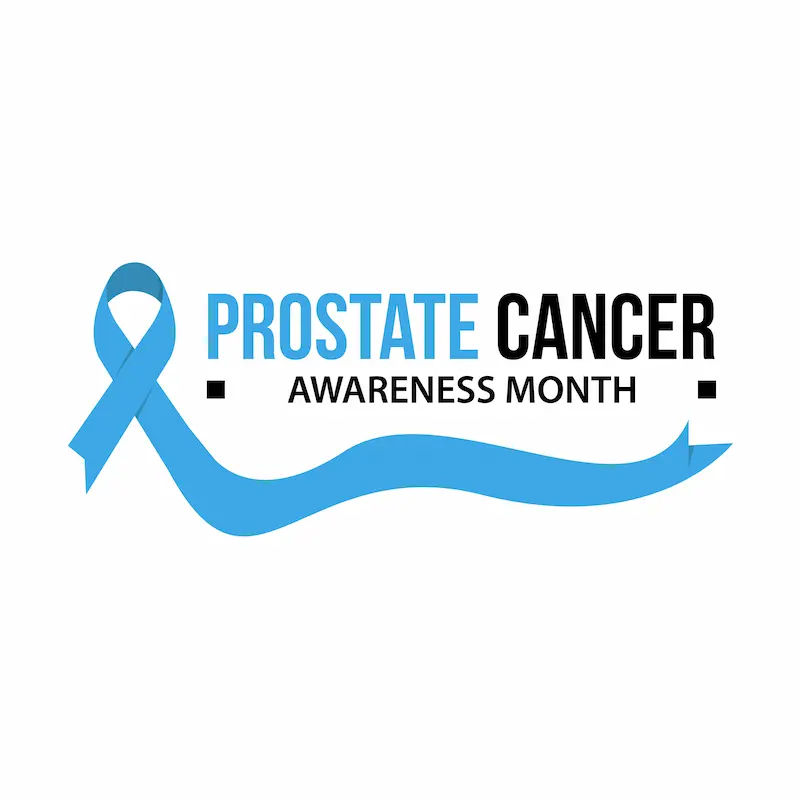Understanding Prostate Cancer: The Role of Genetics and Family History
Learn how genetics and family history influence prostate cancer risk. Explore key genes, the role of genetic testing, and strategies for early detection and personalised care.


Introduction
Prostate cancer is one of the most common cancers among men, and while age and lifestyle are significant factors, a silent contributor often runs in the family: genetics. If you've ever wondered, "Is prostate cancer hereditary?" you're asking the right question. Understanding the genetic factors behind prostate cancer is more than just academic; it can empower you and your family with knowledge for early detection and personalised care. This guide will demystify the complex world of genes and cancer risk. We'll explore the key genes involved, help you determine if you might be at higher risk, and explain how modern genetic testing can inform everything from screening schedules to treatment options, turning fear into actionable insight.
Hereditary vs. Sporadic Prostate Cancer: What's the Difference?
Not all prostate cancers are created equal, especially when it comes to their origin. Understanding the distinction between sporadic and hereditary forms is the first step in grasping your personal risk.
What is Sporadic Prostate Cancer?
The vast majority of prostate cancer cases—about 75-80%—are considered sporadic. This means the genetic mutations that caused the cancer occurred by chance within a single prostate cell during a man's lifetime. These are called acquired or somatic mutations. They are not inherited from parents and cannot be passed down to children. These mutations can be influenced by factors like advancing age, exposure to certain chemicals, or random errors in cell division. Because they are not inherited, a family history of cancer may be absent.
What is Hereditary Prostate Cancer?
Hereditary prostate cancer accounts for roughly 5-10% of all cases. This form occurs when a person inherits a harmful genetic mutation from either parent. This mutation is present in virtually every cell of their body from birth (known as a germline mutation). Inheriting a mutated gene doesn't guarantee you will get cancer, but it significantly increases your lifetime risk and often leads to cancer developing at a younger age. A key characteristic is a strong family history, where multiple close relatives (e.g., father, brothers, uncles) across generations have been diagnosed with prostate or other related cancers.
Unique Insight: It's crucial to know that some families may have multiple cases of prostate cancer purely by chance (a statistical cluster), not because of a single inherited gene. This is why genetic counselling is essential to interpret family history accurately.
Consult a Specialist for the best advice
Key Genes Linked to Increased Prostate Cancer Risk
Scientists have identified several genes that, when mutated, significantly raise a man's odds of developing prostate cancer. Knowing these genes helps in understanding your family history of prostate cancer.
BRCA1 and BRCA2: Beyond Breast and Ovarian Cancer
The BRCA genes are tumor suppressors, meaning their normal job is to repair DNA damage and prevent cells from growing uncontrollably. Mutations in these genes are famously linked to breast and ovarian cancer, but they also profoundly impact prostate cancer risk.
BRCA2: This is the most significant gene for hereditary prostate cancer. Men with a BRCA2 mutation have a notably higher risk of developing prostate cancer (up to a 5-7 times increased risk compared to the general population) and are more likely to develop aggressive, fast-growing disease at a younger age.
BRCA1: Mutations in BRCA1 also increase risk, though the association is generally considered stronger for BRCA2.
The HOXB13 Gene and Familial Clusters
The HOXB13 gene was one of the first genes specifically linked to hereditary prostate cancer. A particular mutation (G84E) is found more frequently in families with a history of multiple prostate cancer cases, especially those of Northern European descent. While relatively rare in the general population, its discovery was a landmark in understanding the genetic predisposition to prostate cancer.
DNA Mismatch Repair Genes (e.g., Lynch Syndrome)
Lynch syndrome is a condition caused by mutations in DNA mismatch repair (MMR) genes (e.g., MLH1, MSH2, MSH6, PMS2). It predisposes individuals to colorectal, endometrial, and other cancers. Men with Lynch syndrome have a higher lifetime risk of developing prostate cancer, and their tumors may have unique characteristics that can respond differently to certain immunotherapies.
Other Genes Under Investigation
Research is ongoing. Other genes like ATM, CHEK2, and PALB2 are also associated with a moderate increase in prostate cancer risk. The field of prostate cancer biomarkers is rapidly evolving, with new genetic links being discovered regularly.
Who is at Risk? Recognising the Signs of Hereditary Prostate Cancer
How do you know if your family history warrants a closer look? Certain red flags suggest a possible inherited genetic risk for prostate cancer.
The Importance of Family History
Be concerned if your family tree includes:
Multiple relatives on the same side (mother's or father's) with prostate cancer.
Three or more generations affected by prostate cancer.
A close relative (father, brother) diagnosed before age 55.
Clusters of other cancers in the family, such as breast, ovarian, pancreatic, or colorectal cancer, alongside prostate cancer.
High-Risk Ethnic Groups
Certain ethnicities have a higher baseline risk. Men of African descent have the highest incidence of prostate cancer in the world. Ashkenazi Jewish heritage is also associated with a higher frequency of BRCA mutations.
Early Age of Onset and Aggressive Disease
If you are diagnosed with prostate cancer at a young age (e.g., under 50) or if your cancer is high-grade or metastatic at diagnosis, this could be a sign of an underlying hereditary syndrome, even without a strong known family history.
If several of these risk factors sound familiar, it may be time to speak with a specialist. A doctor can help you assess your personal and family history to determine if genetic testing for prostate cancer cost and effort is justified for your situation. You can consult a genetic counsellor online with Apollo24|7 for a preliminary evaluation.
The Genetic Testing Process: What to Expect
If you and your doctor decide to pursue testing, here’s what the journey typically looks like.
Counselling First: Why Talking to a Genetic Counsellor is Crucial
This is the most important step. A genetic counsellor won't just order a test; they will help you understand the potential benefits, limitations, and psychological implications of testing. They will map your detailed family history, explain the different possible results, and discuss what those results could mean for you and your family.
How the Test is Done (It's Usually Simple)
Genetic testing is typically done on a sample of blood or saliva. It's a simple procedure, often no more invasive than a standard blood draw. The sample is sent to a specialised laboratory that analyses the DNA for mutations in a specific panel of genes known to be associated with cancer risk.
Understanding Your Results: Positive, Negative, and VUS
Positive: A harmful mutation was found in one of the genes tested. This confirms a hereditary predisposition and provides clear information for managing your health and informing relatives.
Negative: No harmful mutations were found in the genes tested. This is reassuring, but it doesn't mean your risk is zero, especially if there's a strong family history. The cancer in your family might be caused by a gene not yet discovered or tested for.
Variant of Uncertain Significance (VUS): This is a genetic change whose impact on cancer risk is currently unknown. It is not a positive result. Most VUSs are eventually reclassified as benign. A genetic counsellor is essential for explaining a VUS and recommending next steps, which usually involve more conservative monitoring.
Conclusion
Understanding the genetic landscape of prostate cancer transforms it from a mysterious threat into a manageable aspect of your health. While we cannot change our genes, we can absolutely change how we respond to them. The knowledge gained from understanding your family history and potentially pursuing genetic testing is profoundly empowering. It allows for a shift from a one-size-fits-all approach to a personalised strategy of vigilant, informed early detection and tailored treatments if needed. This proactive stance can lead to earlier diagnoses, more effective interventions, and better outcomes. It also provides invaluable information that can help protect the health of your entire family. If any part of your story—your family's history, your ethnicity, or your own diagnosis—aligns with the risk factors discussed, take that next step. Your journey toward empowered health begins with a conversation.
Call to Action: Don't let uncertainty dictate your health future. Book a consultation with a urologist or genetic counsellor on Apollo24|7 to discuss your personal risk and create a proactive plan tailored to you.
Consult a Specialist for the best advice
Consult a Specialist for the best advice

Dr. Rohit Bhattar
Uro Oncologist
14 Years • MBBS, MS, MCh (Urology), Fellowship in Uro-oncology and Robotic Urology (United Kingdom)
Ahmedabad
Apollo Hospitals Gandhinagar, Ahmedabad
(100+ Patients)

Dr. Kunal Kumar Mehar
Urologist
10 Years • Mbbs, Ms, Mch
Bengaluru
Apollo Medical Center, Marathahalli, Bengaluru
Dr. J Chaithanya
Urologist
6 Years • MBBS MS GENERAL SURGERY MCH UROLOGY
Bengaluru
Apollo Medical Center, Marathahalli, Bengaluru

Dr. Yogesh Taneja
Urologist
15 Years • MBBS , MS (General surgery), DNB (Genito Urinary Surgery)
Gurugram
Procyon Health, Gurugram

Dr. Moin Mohammed Bavakatti
Urologist
13 Years • MBBS, MS (General Surgery), Mch (Urology), DNB (Urology), Diploma in Minimal Access Surgery, Fellow of Internal College of Robotic Surgeons), Vinci Surgical system, Fellow in Endocrinology, Clinical and Research fellow in Laparoscopic Urology, Laser Endourology & Laparoscopic & Robotic Urology, Fellowship in 3D laparoscopic Urology
Bengaluru
Dr Moin Mohammed Bhavikatti Clinic, Bengaluru
(150+ Patients)
More articles from Prostate cancer
Frequently Asked Questions
1. If my father had prostate cancer, will I definitely get it?
No, it does not mean you will definitely get it. It means your risk is approximately doubled compared to a man with no family history. It's a reason to be more vigilant about screening and to discuss your risk with a doctor, but it is not a certainty.
2. Should all men get genetic testing for prostate cancer?
No, genetic testing is not recommended for all men. It is typically advised for those with a strong family history of prostate cancer (especially at young ages), a personal history of aggressive prostate cancer, or a known family history of BRCA or Lynch syndrome-related cancers.
3. What is the cost of genetic testing for prostate cancer risk?
The cost can vary widely depending on the lab and the number of genes tested, ranging from a few hundred to several thousand dollars. Many insurance plans cover testing if you meet specific criteria based on personal or family history. A genetic counsellor can help you navigate insurance coverage.
4. Can lifestyle changes help if I have a high genetic risk?
Absolutely. While you can't change your genes, you can influence your overall health. Maintaining a healthy weight, eating a diet rich in fruits and vegetables (like tomatoes and cruciferous vegetables), and exercising regularly may help lower your risk and contribute to better general health, complementing any medical screening strategies.
5. What should I do if my genetic test result is a VUS?
A variant of uncertain significance (VUS) should not be used to make medical decisions. The recommended path is to continue with cancer screening based on your personal and family history, as if the VUS was not found. Stay in touch with your genetic counsellor, as labs periodically reclassify VUS results as new research emerges.




